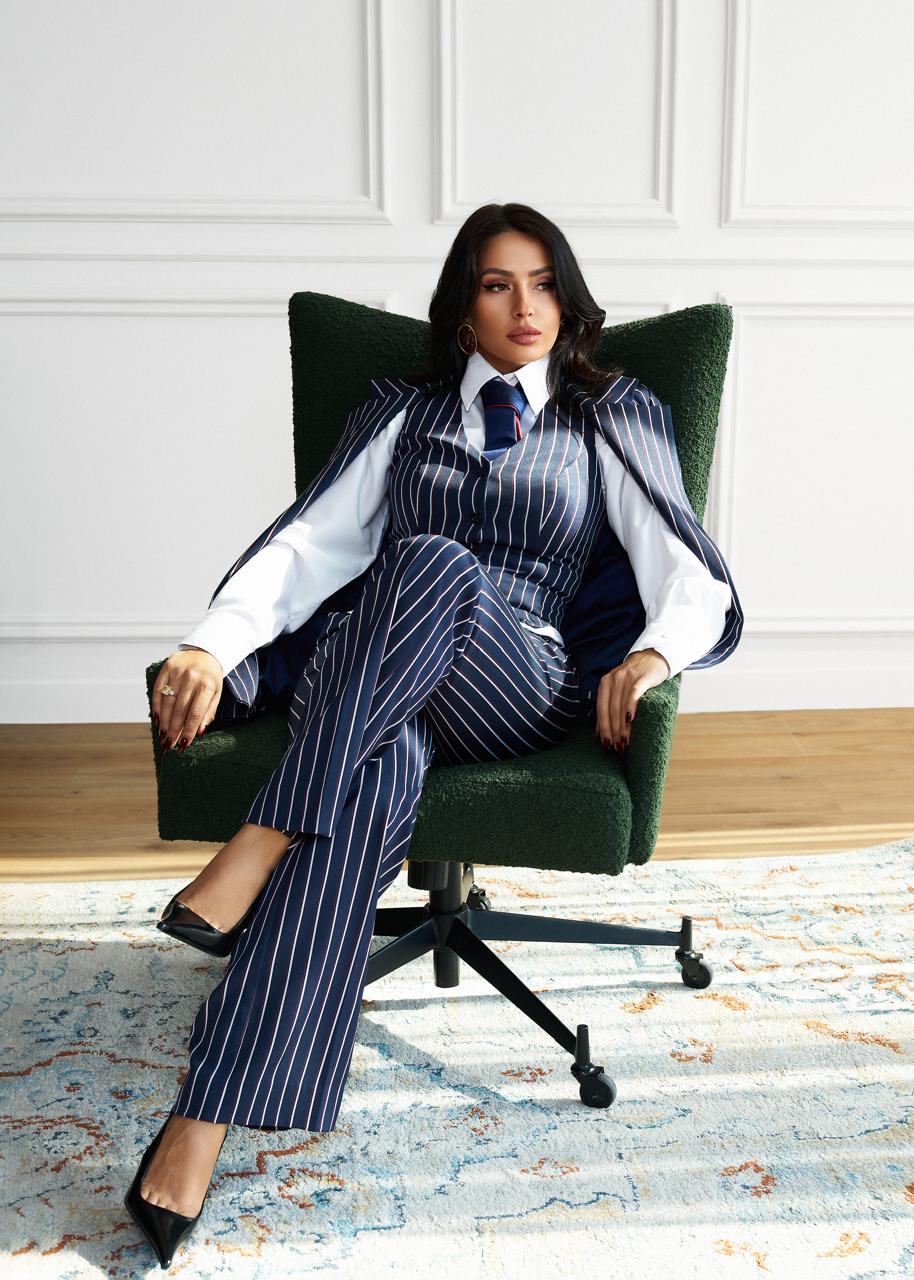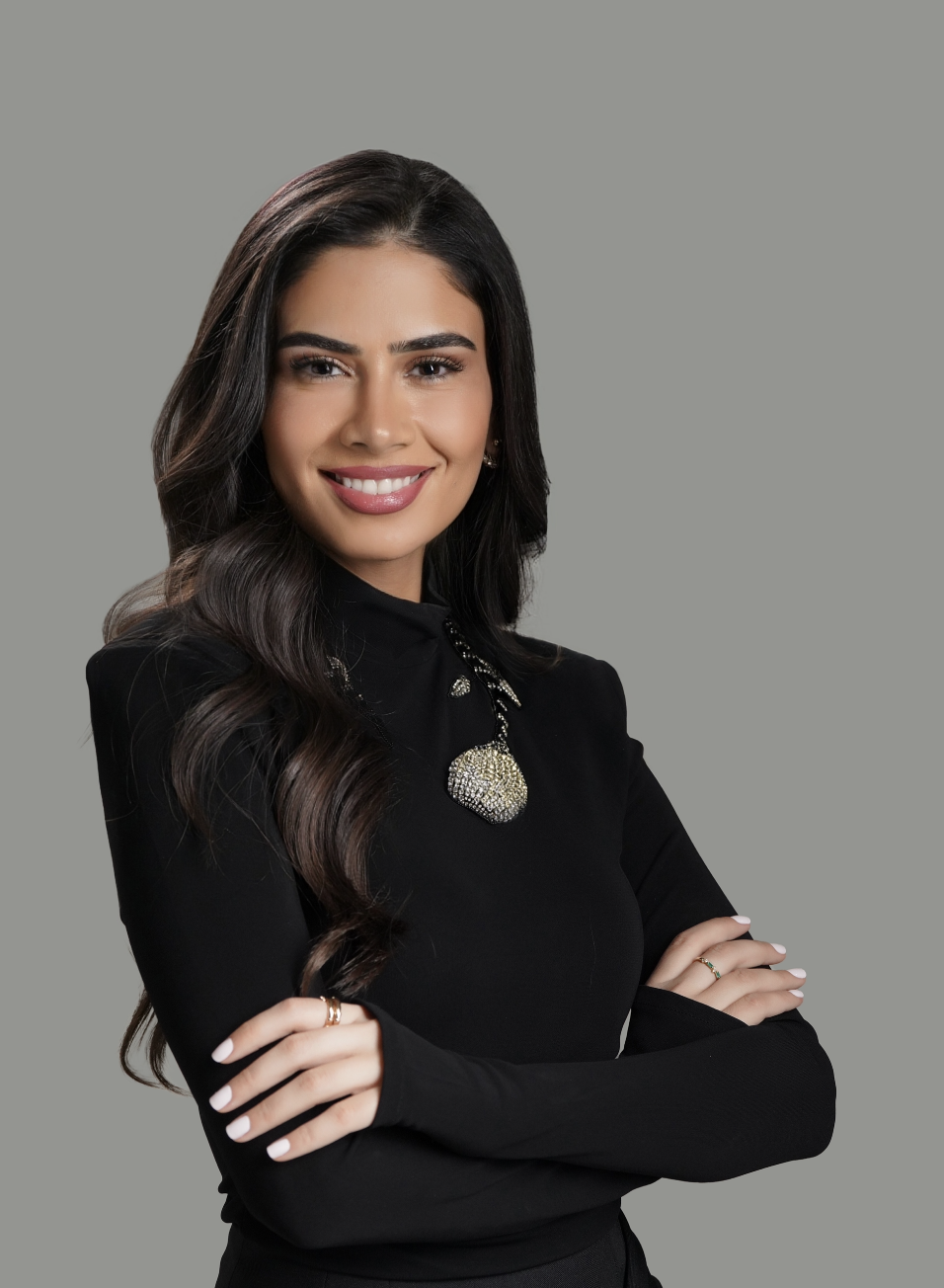In the wake of Women’s International Day, the transformative impact of Saudi Arabia’s Vision 2030 on women’s empowerment has taken center stage. Reforms initiated by Vision 2030 have elevated the narrative surrounding women from striving for equality to achieving distinction and recognition in various fields. Saudi women have transcended traditional boundaries, emerging as leaders, innovators, and trailblazers, setting the stage for future generations of female leaders in the Kingdom.No longer content with seeking equality or equal opportunities, Saudi women are now aiming to excel in ideology, accomplishments, and innovation across all sectors. These women have become ambassadors, directors, government spokespersons, and much more, amplifying their voices both nationally and internationally.In February 2021, women in Saudi Arabia achieved significant milestones in the armed forces, with women serving as sergeants leading teams of soldiers in various branches, including the Saudi Arabian Army, Royal Saudi Air Defense, Royal Saudi Navy, Royal Saudi Strategic Missile Force, and Armed Forces Medical Services.Vision 2030 has reshaped the goals of Saudi women, propelling them toward leadership, influence, and the transformation of the Kingdom’s future. These women are driving financial growth, advocating for social reforms, and paving the way for future generations of female leaders.Beyond career opportunities, Vision 2030 has also reshaped Saudi women’s social lives, empowering their voices and ensuring their rights. Legal reforms have granted divorced women the support they need, including the establishment of an alimony fund and the removal of the requirement for a guardian’s presence in judicial departments. These changes have ushered in a new era of empowerment for Saudi women.
The ascension of Crown Prince Mohammed bin Salman in 2017 marked a turning point, as promises made were transformed into tangible achievements. Saudi women now participate in the workforce, drive freely on the roads, and enjoy increased independence, particularly following the relaxation of the guardianship law in recent years. They benefit from legal protections, such as the sexual harassment law, and receive unwavering support from the government in pursuing their ambitions and holding high-ranking positions.In July 2020, King Salman issued a royal decree appointing 13 women to serve on the Saudi Human Rights Commission, marking a significant milestone in gender equality and amplifying women’s voices in the Kingdom.Saudi women are making significant contributions to the diversification of the Kingdom’s economy, with a notable rise in female entrepreneurs, business owners, and CEOs over the past decade. Dr. Maliha Hashmi, an executive director in the NEOM megacity project’s health and wellbeing sector, emphasized that Vision 2030 has provided opportunities for women to redefine traditional roles and positively transform societal expectations.Under the visionary leadership of Crown Prince Mohammed bin Salman, Saudi Arabia has made remarkable strides in empowering its women. Beyond the well-known achievement of women driving on Saudi roads, these reforms have led to increased ownership of high-tech startups by women and the appointment of female diplomats within the GCC. This wave of empowerment has also seen the rise of leading female executives, such as Dr. Maliha Hashmi herself, who serves as a role model for young women aspiring to make a difference.Vision 2030 has not only opened doors for Saudi women but has also broadened their horizons globally.
Women from Saudi Arabia now travel the world independently, free from the requirement of a male guardian, thanks to a decree allowing women over the age of 21 to obtain their own passports and travel freely.Moreover, the right to drive, granted by Vision 2030, led to the emergence of the first professional female racing driver, Reema Al-Juffali. The reforms have also fostered equal opportunities in the field of science, propelling women scientists like Nouf Al-Numair into the spotlight for their pioneering work in gene mutation-based early disease detection.Saudi women’s achievements under the umbrella of empowerment are a testament to the transformative power of Vision 2030. These changes are not just limited to the economic and social spheres but have also garnered global recognition. The World Bank Group’s “Women, Business and the Law 2021” report named Saudi Arabia one of the top countries for economic inclusion and women’s reform for the second consecutive year.Noura Al-Dossary’s story serves as a powerful example of the impact of these changes. As an orphaned and divorced mother, she found support and opportunities in a variety of workplaces, ultimately achieving financial independence and personal growth. Her journey exemplifies the resilience and determination of Saudi women, whose success stories may not always make headlines but are nonetheless integral to Saudi society.
Vision 2030’s rapid transformation, driven by Crown Prince Mohammed bin Salman’s leadership, is not just a domestic endeavor but a global force for change. It has empowered Saudi women to take the reins of their own destinies, fostering an era of female leadership and innovation that will shape the Kingdom’s future for generations to come.













Hi there, just wanted to mention, I enjoyed this
blog post. It was practical. Keep on posting!
It’s really a nice and useful piece of information. I’m happy that you
just shared this helpful info with us. Please keep
us up to date like this. Thanks for sharing.
What’s up, its nice post concerning media print, we all know
media is a impressive source of data.
My spouse and I stumbled over here different page
and thought I might as well check things out.
I like what I see so now i’m following you. Look forward to looking
into your web page for a second time.
You need to be a part of a contest for one of the highest quality blogs
online. I will highly recommend this website!
Hey just wanted to give you a quick heads up. The words in your article seem
to be running off the screen in Chrome. I’m not sure if this is a formatting issue
or something to do with internet browser compatibility but I figured I’d post to let you know.
The layout look great though! Hope you get the issue
fixed soon. Thanks
I every time spent my half an hour to read this weblog’s content all the time along with a mug of coffee.
Truly no matter if someone doesn’t understand afterward its up to other visitors
that they will help, so here it happens.
It’s an remarkable article in favor of all the web viewers; they will
get benefit from it I am sure.
Right here is the perfect site for anybody who wishes to find out about this topic.
You realize a whole lot its almost hard to argue with you (not that I
really would want to…HaHa). You definitely put a brand new
spin on a subject which has been written about for ages.
Wonderful stuff, just great!
Hey would you mind letting me know which hosting company you’re using?
I’ve loaded your blog in 3 different browsers and I must say this
blog loads a lot quicker then most. Can you suggest a good internet hosting provider at
a fair price? Thanks a lot, I appreciate it!
excellent submit, very informative. I’m wondering why
the opposite specialists of this sector don’t understand this.
You must continue your writing. I am confident,
you’ve a great readers’ base already!
I’m extremely impressed with your writing skills and also with the layout on your blog.
Is this a paid theme or did you modify it yourself?
Anyway keep up the nice quality writing, it’s rare to see
a nice blog like this one these days.
What i do not understood is if truth be told how you’re now not actually a lot more smartly-appreciated than you
may be now. You’re so intelligent. You recognize therefore significantly in the case of this subject, produced me
in my opinion believe it from a lot of various angles.
Its like women and men are not involved until it is one thing to accomplish
with Lady gaga! Your individual stuffs nice.
At all times deal with it up!
I really like what you guys are usually up too.
This sort of clever work and exposure! Keep up the awesome works guys I’ve
added you guys to blogroll.
Link exchange is nothing else however it is simply placing the other person’s web site link
on your page at proper place and other person will also do
same for you.
I have been exploring for a bit for any high quality articles or
weblog posts on this kind of area . Exploring in Yahoo I
ultimately stumbled upon this website. Studying this information So i am happy to exhibit that I have a very good uncanny feeling
I found out exactly what I needed. I most surely will make certain to don?t omit
this web site and provides it a glance on a relentless basis.
I am really thankful to the owner of this web site who has shared this impressive post at at this
time.
I will immediately snatch your rss feed as I can’t in finding your email subscription link
or newsletter service. Do you’ve any? Kindly let me know so that I could
subscribe. Thanks.
Hi would you mind stating which blog platform you’re using?
I’m planning to start my own blog soon but I’m having
a hard time selecting between BlogEngine/Wordpress/B2evolution and Drupal.
The reason I ask is because your layout seems different
then most blogs and I’m looking for something unique.
P.S Sorry for being off-topic but I had to ask!
Your style is really unique compared to other folks
I’ve read stuff from. Thank you for posting when you have the
opportunity, Guess I’ll just bookmark this site.
If you are going for best contents like myself, just
go to see this site all the time as it presents quality contents,
thanks
Wow! This blog looks just like my old one! It’s on a totally different subject but it has pretty much the same page layout and design. Wonderful
choice of colors!
You’ve made some decent points there. I checked on the
net for more info about the issue and found most people will go along with
your views on this web site.
I used to be recommended this blog by means of my cousin. I’m no longer sure whether this post is written by means of him as
nobody else understand such targeted about my problem.
You’re amazing! Thanks!
fantastic post, very informative. I’m wondering why
the opposite specialists of this sector don’t understand this.
You should continue your writing. I’m confident, you have a great readers’ base already!
Hello, I check your blog on a regular basis.
Your humoristic style is awesome, keep it up!
I’m not that much of a internet reader to be honest but your sites really nice, keep it
up! I’ll go ahead and bookmark your site to come back in the future.
Many thanks
An interesting discussion is definitely worth comment.
I do think that you should publish more on this subject matter, it might not be
a taboo subject but generally people do not speak about such subjects.
To the next! Best wishes!!
Hey! I know this is kinda off topic however , I’d figured I’d ask.
Would you be interested in exchanging links or
maybe guest authoring a blog post or vice-versa? My blog addresses a lot of the same topics as yours and I think we could greatly benefit from each other.
If you happen to be interested feel free to send me an e-mail.
I look forward to hearing from you! Awesome blog by the way!
Today, I went to the beachfront with my children. I found
a sea shell and gave it to my 4 year old daughter and said “You can hear the ocean if you put this to your ear.” She put the shell to her ear and screamed.
There was a hermit crab inside and it pinched
her ear. She never wants to go back! LoL I know this is entirely off topic but
I had to tell someone!
Hello friends, how is everything, and what you desire to say about this post, in my view its
in fact awesome in support of me.
This is my first time pay a quick visit at here and i am in fact impressed to read
all at alone place.
Thank you for the auspicious writeup. It in fact was a amusement
account it. Look advanced to more added agreeable from you!
However, how could we communicate?
I know this if off topic but I’m looking into starting my own blog and
was curious what all is needed to get set up? I’m assuming having a blog like yours would cost a pretty penny?
I’m not very internet smart so I’m not 100% sure.
Any recommendations or advice would be greatly appreciated.
Cheers
Spot on with this write-up, I honestly believe that this web site needs a lot more attention. I’ll probably be returning to read through
more, thanks for the information!
I want to to thank you for this very good read!!
I certainly loved every little bit of it.
I’ve got you book-marked to look at new things you post…
You could certainly see your skills in the work you write.
The arena hopes for even more passionate writers such
as you who aren’t afraid to say how they believe. At all times follow your heart.
It’s an remarkable piece of writing for all the internet visitors;
they will take advantage from it I am sure.
What’s up colleagues, its fantastic paragraph on the topic of educationand entirely explained,
keep it up all the time.
My brother suggested I might like this blog. He was
totally right. This post actually made my day.
You can not imagine just how much time I had spent for this information! Thanks!
What you said was actually very reasonable. However, what about this?
suppose you added a little content? I mean, I don’t
wish to tell you how to run your blog, however suppose you added a title that makes people desire more?
I mean Saudi Women Breaking Barriers: Vision 2030 Paves The Way For
Female Empowerment – Womenpreneur is a little plain. You ought
to glance at Yahoo’s home page and note how they
create news titles to grab viewers to open the links.
You might try adding a video or a picture or two to get readers interested about everything’ve got to say.
Just my opinion, it might bring your website
a little bit more interesting.
My programmer is trying to convince me to move to .net from PHP.
I have always disliked the idea because of the expenses.
But he’s tryiong none the less. I’ve been using Movable-type on several websites for about a year and am anxious about switching to another platform.
I have heard excellent things about blogengine.net.
Is there a way I can transfer all my wordpress posts
into it? Any kind of help would be really appreciated!
Hello are using WordPress for your site platform?
I’m new to the blog world but I’m trying to get started and create my own. Do you need any coding knowledge to make your own blog?
Any help would be greatly appreciated!
I am truly pleased to glance at this webpage posts which consists of lots of valuable facts, thanks for providing these kinds of
statistics.
What’s Going down i am new to this, I stumbled upon this
I have found It positively helpful and it has
helped me out loads. I am hoping to give a contribution & help different users like its aided me.
Great job.
Why visitors still make use of to read news papers when in this technological globe the whole thing is accessible
on web?
This is my first time pay a visit at here and i am genuinely impressed to read everthing at one
place.
You really make it seem so easy with your presentation but I find this
topic to be really something that I think I would never understand.
It seems too complex and extremely broad for me. I’m looking
forward for your next post, I will try to
get the hang of it!
Hi there, its good article regarding media print, we all know media is a fantastic source of
facts.
Cool blog! Is your theme custom made or did you download it from somewhere?
A theme like yours with a few simple tweeks would really make my blog
stand out. Please let me know where you got your design. Bless you
I was more than happy to uncover this web site. I want to to thank you for ones time for this fantastic read!!
I definitely enjoyed every little bit of it and I have you book-marked to check out
new stuff in your web site.
Hi i am kavin, its my first occasion to commenting anyplace, when i read this article
i thought i could also make comment due to this brilliant article.
My spouse and I stumbled over here by a different web address and thought I may as well check things out.
I like what I see so now i’m following you. Look forward to going over your web page for a second time.
I’m curious to find out what blog system you’re utilizing?
I’m experiencing some small security problems with my latest blog and I
would like to find something more risk-free. Do you have any suggestions?
An intriguing discussion is worth comment.
I believe that you need to publish more about this topic, it may not be a
taboo subject but generally people do not talk about these issues.
To the next! Cheers!!